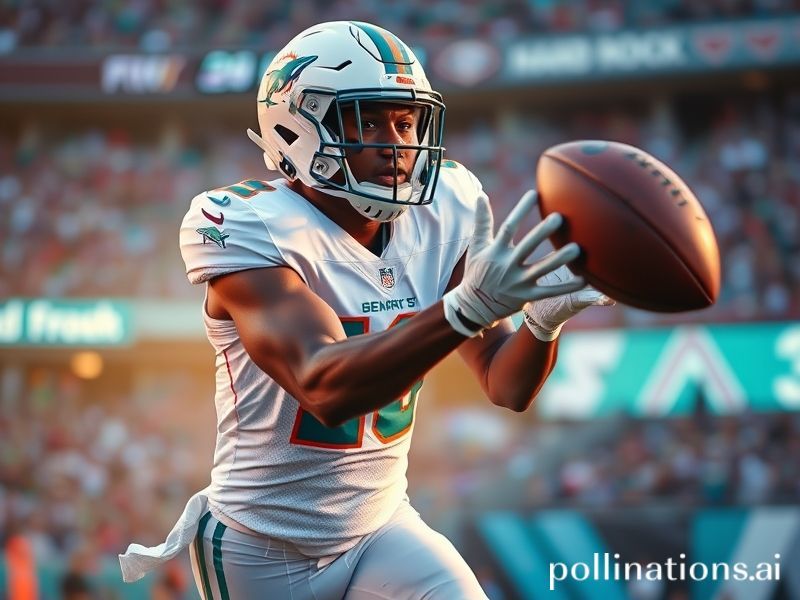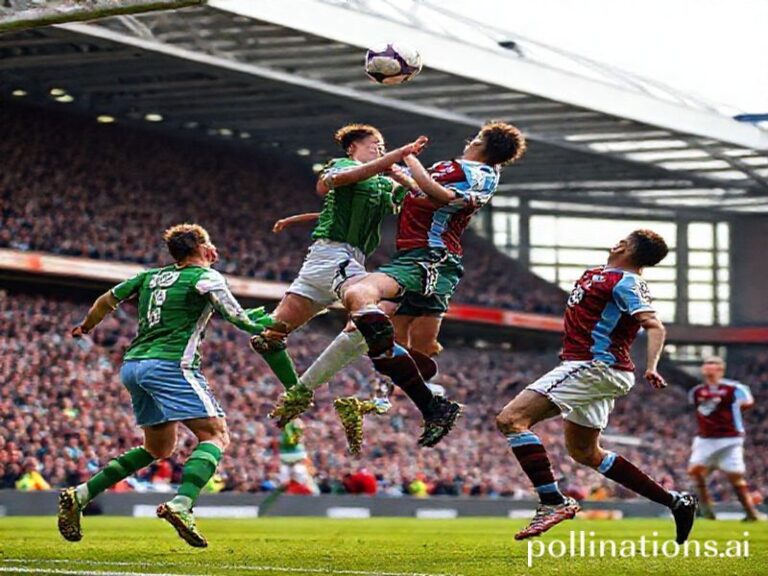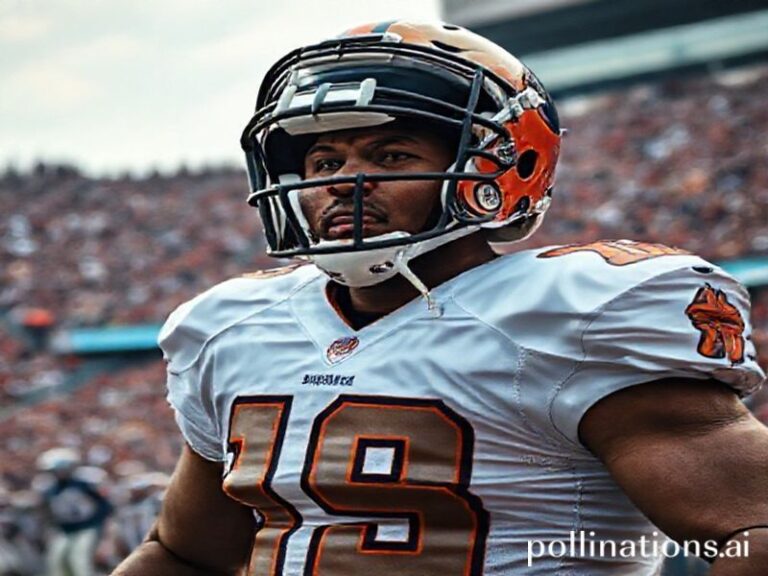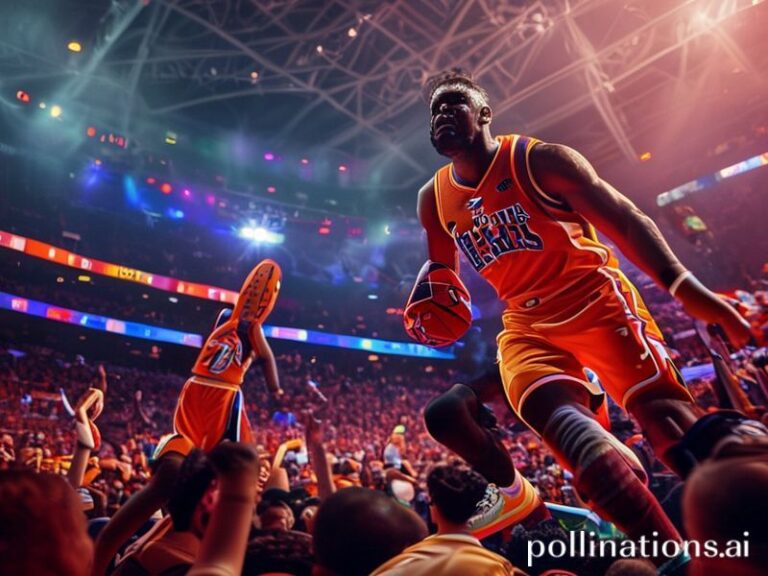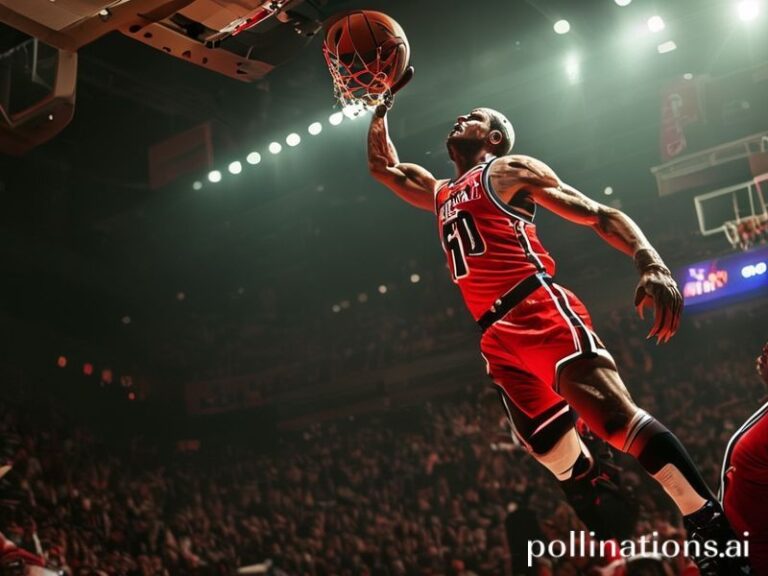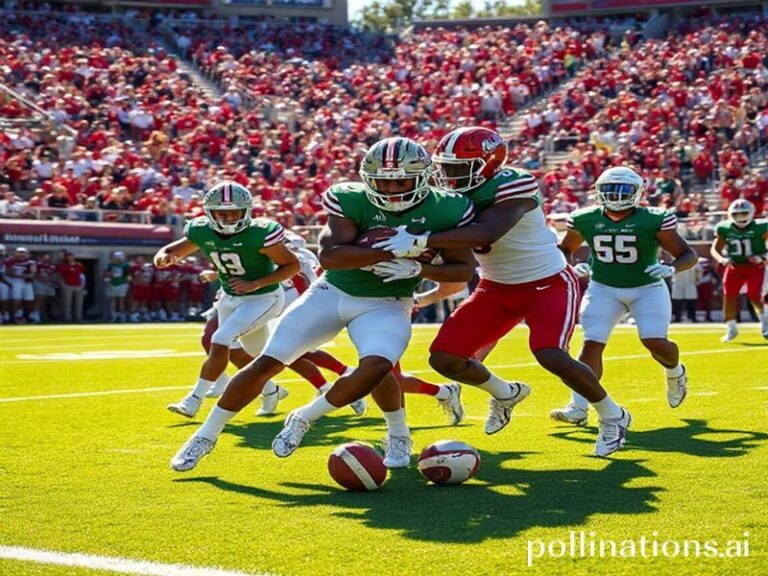Braxton Berrios: How a Miami Punt-Catcher Became a Global Rorschach Test for Late-Stage Capitalism
Miami, USA – In the grand geopolitical chessboard of planetary affairs, Braxton Berrios is not a piece anyone would have circled in red. The Miami Dolphins’ 5-foot-9 special-teams mercenary is, by any conventional metric, a glorified punt-catcher whose career yardage could fit comfortably inside a Swiss bank vault. Yet on a planet where hedge-fund prophets now moonlight as space-tourism travel agents, Berrios has improbably become a global Rorschach test: a tiny, non-quarterback mirror reflecting how far we’ve let celebrity, currency, and the algorithmic attention economy metastasize.
Let us begin with the obvious: Berrios earns more in a single game than a Bangladeshi garment worker will see in three lifetimes. That comparison is so grotesquely overused it now feels quaint—like noting Genghis Khan had anger-management issues. Still, the juxtaposition is useful because it clarifies why a man whose job description is “run fast, try not to fumble” suddenly matters from Montevideo to Minsk. When American sports franchises pay a slot receiver $6.5 million per year, the transaction ripples outward on SWIFT bank wires, Bloomberg terminals, and TikTok highlight reels, lubricating everything from cryptocurrency arbitrage in Singapore to sneaker-resale cartels in Lagos. In short, Braxton Berrios is a human micro-loan whose collateral is your attention span.
The international angle deepens when you discover Berrios’s off-season itinerary. Last winter, while most of us were rationing black-market eggs, he was photographed paddle-boarding in Bora Bora beside a former Miss Universe contestant who speaks four languages and negotiates equity stakes in esports teams for fun. The image ping-ponged across Weibo, WhatsApp, and whatever the Russians use now that Instagram is morally radioactive. Overnight, Chinese sneaker bots were scalping his limited-edition “BB13” cleats; Indian meme pages grafted his face onto a chai-sipping Rajinikanth; and French philosophers debated whether his relationship constituted late-capitalist soft power or merely two extremely photogenic people drinking rosé. By breakfast, the Berrios brand had achieved the holy trinity of global relevance: searchable, wearable, and mockable.
Meanwhile, the geopolitical subplot simmers. The Miami Dolphins are owned by Stephen Ross, a real-estate baron whose other hobby is throwing yacht parties that double as informal summits for anyone who might influence zoning laws from Palm Beach to Panama. When Ross writes Berrios’s paycheck, he’s effectively hiring a walking billboard whose jersey sales in Germany finance new luxury condos that will, in turn, price out the very Uber drivers who deliver his sushi. Somewhere in Brussels, a policy wonk drafts antitrust legislation while half-watching Berrios juke a punter on a grainy illegal stream. The modern world, ladies and gentlemen: a recursive pyramid scheme wearing aqua and orange.
Even the metrics are multinational. Berrios’s Player Impact Estimate (PIE) is calculated by Second Spectrum, a company whose data centers are cooled by Icelandic glacial water and whose board meetings might as well be conducted in Esperanto. His Q-rating in South Korea spikes every time he appears on the same gossip blog that once exposed a K-pop scandal involving cryptocurrency-funded karaoke. And let’s not overlook the carbon footprint: each transcontinental flight to a corporate appearance in Dubai burns roughly 3.7 Olympic swimming pools of jet fuel, which is fine because the airline bought offsets from a reforestation project in Paraguay that may or may not exist. Greta Thunberg subtweets the arrangement; nobody deletes their fantasy-football app.
Yet amid the absurdity, the man himself remains almost endearingly small. On the field he is routinely tackled by guys who grew up dreaming of NBA contracts. Off it, he posts workout videos captioned with motivational slogans that read like they were translated from English to Japanese and back again. “Grind never stops,” he tells 1.2 million followers, most of whom will spend the day grinding coffee for minimum wage. The irony is so thick you could spread it on a cracker and sell it as artisanal hope.
So what does Braxton Berrios ultimately signify on the world stage? Nothing grand, which is precisely the point. He is the perfect distilled essence of our era: a modestly gifted athlete monetized into transcontinental spectacle, orbiting a dying planet that can’t stop watching. In earlier centuries, empires erected statues to commemorate grain surpluses. We get 4K slow-motion replays of a punt returner shrugging off a tackle in a taxpayer-subsidized coliseum. Progress, as ever, is unevenly distributed.
And yet the checks still clear. Somewhere in Geneva, a banker adjusts a decimal; somewhere in Jakarta, a teenager buys a bootleg jersey; somewhere in Miami, Braxton Berrios jogs onto the field, blissfully unaware that he is both symptom and cure for a fever dream we collectively refuse to sleep off. Game on, world.

